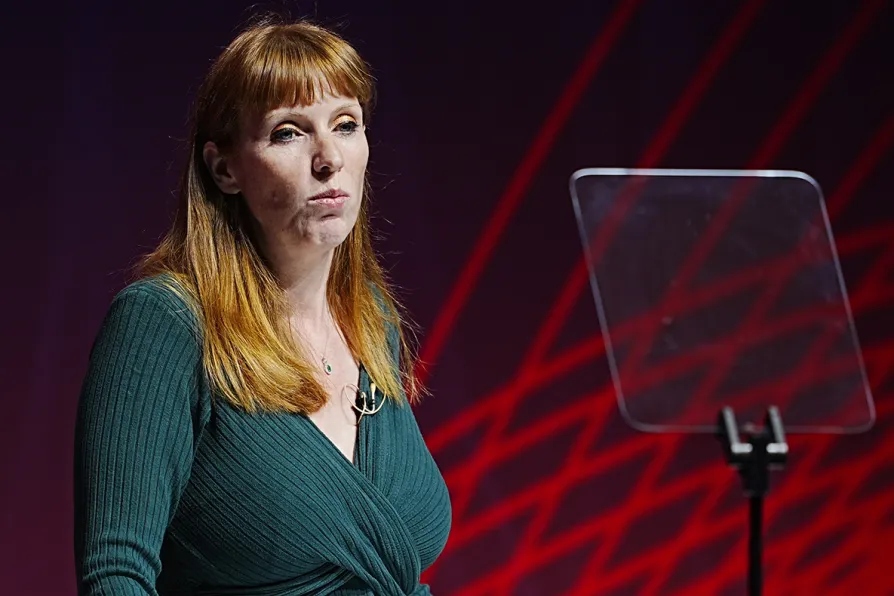
 Deputy Prime Minister Angela Rayner speaking during the Local Government Association annual conference at the ACC Liverpool, King's Dock, Port of Liverpool, July 3, 2025
Deputy Prime Minister Angela Rayner speaking during the Local Government Association annual conference at the ACC Liverpool, King's Dock, Port of Liverpool, July 3, 2025
IT is a bad time for the Keir Starmer/Angela Rayner/Rachel Reeves leadership of the Labour Party.
Perhaps, given the manifest lessening of ministerial collegiality, we should use the designation “leadership” with some caution.
The number crunchers tell us that the British (capitalist) economy suffered yet another reduction in GDP in May. With Starmer decidedly lackadaisical in his support for his Chancellor, we can see an early victim of the tendency for deputy heads to roll when things come unstuck.
Of course, the nominal deputy head is Deputy Prime Minister Rayner. Where Starmer and Reeves, and most of the Cabinet, from the outset of this administration, seemed intensely focused on depressing working-class expectations about policy and progress, Rayner hinted at a somewhat different offer.
But now delegates to the Unite conference have voted overwhelmingly to suspend Rayner from Unite membership and re-examine the union’s relationship with Labour.
The Birmingham bins dispute — where a nominally Labour council is intent on a programme of wage cutting more vicious than any 1930s employer cutting costs in the face of the Slump — is the issue which brought to a head the widespread anger that Unite members feel at Starmer Labour’s serial betrayals.
Birmingham City Council’s financial problems have a decidedly capitalist genesis. Firstly, the council is cash-strapped because for years, decades actually, local government has been defunded. Secondly, it has to find an enormous sum to pay compensation to women workers who, for years, decades, actually, were discriminated against by being paid less for work of equal value.
In her role as Communities Secretary, Rayner is perfectly positioned, as a former low-paid public service worker and as the relevant minister, to put pressure on her ministerial colleagues, particularly Reeves, to find a funding solution to Birmingham’s cash flow problems.
Instead of taking action to resolve the dispute in the interests of Birmingham’s rubbish-engulfed residents, she appeals to the bin workers to accept a pay cut and said her department was backing the employer in “clearing the backlog” of accumulated rubbish — i.e. strike-breaking.
From a working-class standpoint, she could be hardly less Miss Collegiality.
Unite is among the biggest of Labour’s affiliated unions, and if it backs away from Labour, it could deepen a trend that has seen at various times RMT, the FBU, and the Bakers, Food and Allied Workers disaffiliate.
Some on the right would welcome an even greater weakening of union influence on Labour, although even the most committed of supporters for the Labour trade union link can hardily find evidence of a fundamental shift in the power and influence of unions on Labour government policy.
Of course, simple disaffiliation could lead to a retreat into a sectional and non-political syndicalism, which would effectively abandon the battle for working-class power to be exercised at the level of the state.
The present trajectory of the Labour government illustrates the reality that without a political majority of working people committed to a programme of economic and social policies which tackle the entrenched class power of big business, the banks and the bourgeoisie then any government will be at the mercy of the bond markets and the global financial institutions whose raison d’etre is the defence of capital.
Whether the route to working-class political power lies in a determined trade union effort to shape Labour government policies; a revival of the Labour left at constituency level and in the PLP; in a new socialist formation challenging Labour for working-class support, or a combination of these factors is up for discussion.
What is clear is that things cannot remain as they are.












